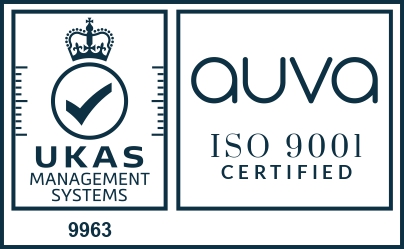So, you have an interview! What next?
So, you have an interview? #Interviews are increasingly varied in terms of style and structure so how do you know what to prepare?
Preparation is the key word, I hate to use the quote “fail to prepare, prepare to fail”! However, in this case it is the only way you can differentiate yourself from other candidates in the process.
Interviews can be daunting even for the most senior of solicitors. Mainly, as there is a huge variety and scope of interview styles between different firms. Some companies will have a quick chat through your CV and some others will be much more structured and include a few different types of interview questions.
Sometimes companies will give you a detailed overview of the structure of the interview and some won't want to give too much away. My advice? Prepare for the most structured interview and you will be prepared for everything!
Typically, most companies are moving towards more structured interviews which cover questions around your interest in the company, CV biographical questions which delve into motivations around your career choices and reasons for moving from different roles. Technical questions and competency-based questions. If you are interviewing at a senior level for a private practice they will also include questions around business development and ability to build client networks and often a business case discussion.
Why do you want to work for our company? This is a key question and often is the first question you will be asked in an interview and so your opportunity to really shine and get the interview off to a great start. There is nothing more off putting for a company to have someone interviewing that knows scant information about the company, it shows they have a lack of interest in the process and the company itself. The company’s website is the bare minimum I would advise however if you want to really stand out, research other people within their firm and who is interviewing you, have they written any blogs/articles? If so read them! Research the senior partners and their profiles. Look and see any key transactions/matters in the news, particularly if they are in the practice area for which you are applying.
What key skills and experience can you bring to the role? This is another key question and one you really want to “nail” to get that role. Think about how you can differentiate yourself versus other candidates. Most candidates interviewing will have the same basic background in terms of years of PQE and practice area so I would focus on key career/academic achievements that will make you stand out. Did you bring in a large client, manage a large transaction which was high profile for the firm, have you achieved excellent academics?
Competency based questions -Preparation is essential for these questions. Typically, you can pre-determine the types of competency-based questions that will be asked by thinking about the type of role and key skills required. For example – when interviewing for an in-house solicitor role, management of internal stakeholders is essential and often asked about or interviewing for a personal injury solicitor role, the ability to manage a busy and voluminous caseload will be an essential skill of the role.
Technical interview questions – Generally these will take the form of discussing specific transactions/matters you have worked on and the role you played (i.e. did you assist/lead the transaction, size, nature, client size etc). This will help the firm determine the level of responsibility you have been given and your general technical knowledge of your practice area. Before an interview take the time to think through your examples, write them down and remember detail is key!
The Close! The last part of the interview is also very important as the last opportunity to make that impression to the interviewers.
Do you have any questions for us? This will always be asked in interviews. Show that you have done your preparation with well thought out questions that show you have done your research into the company and have a genuine interest in them and the role.
Avoid questions around salary, benefits etc these things will be discussed at offer stage in the process and unless the company brings it up is best avoided.
Make sure you ask any questions you might need to know regarding the company, role and structure of the team etc. Interviewing is a two-way process and it is important that you leave the interview with clarity that this role/company is for you!
Finally, thank the interviewers for their time.
Good luck!
If you are a solicitor seeking your next move or just want an update on the current legal job market, contact Lindsey McCracken for a confidential chat on 07458160131 or email lindsey@huntersavage.com

speak to one of our experts
Contact usContact our team today and let Hunter Savage provide expert advice and guidance to help you find your dream job or to place top talent to drive your business.
download our
2026 salary survey
Download salary survey





